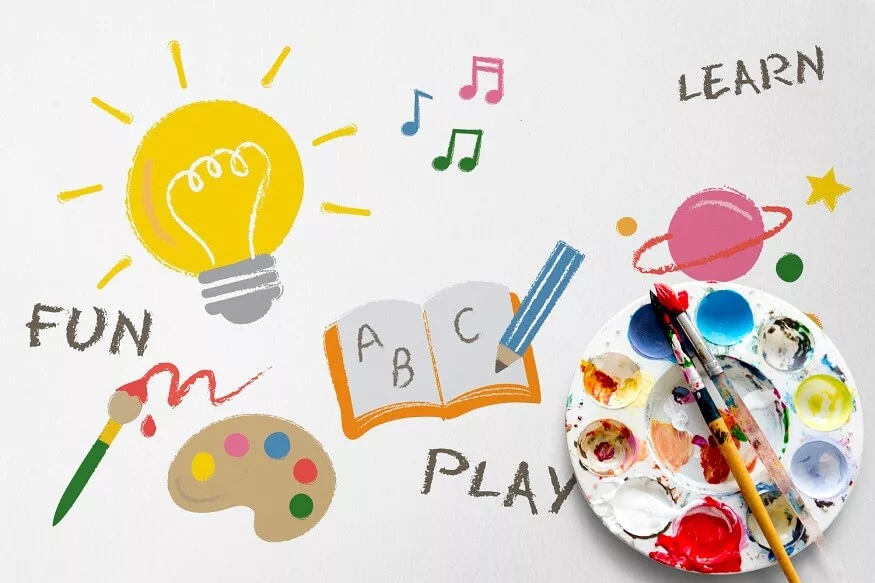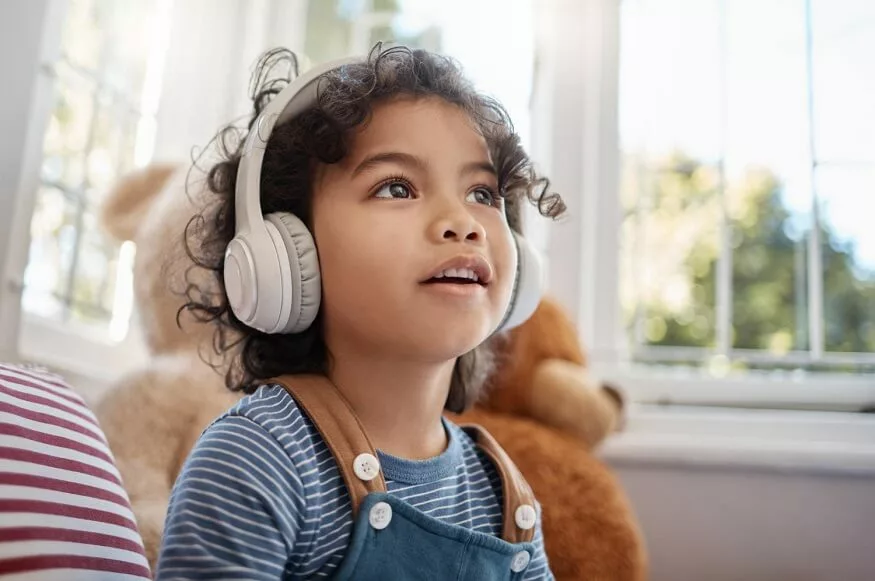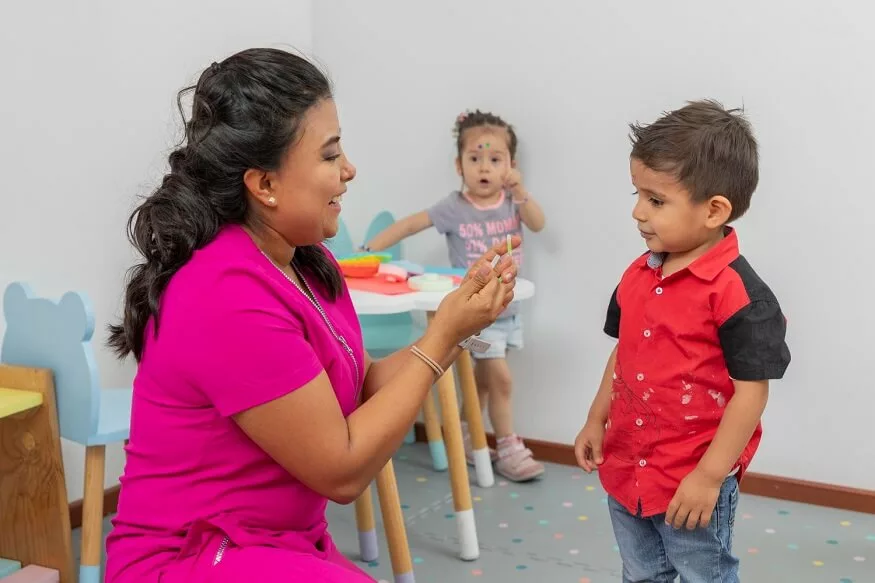Preschool activities stand as the magical ingredients that not only make learning fun but also lay the foundation for a lifetime of curiosity and intellectual growth. In this article, we delve into the importance of educational activities for preschoolers, understanding how these activities shape the learning experience and set the stage for a lifelong love of learning.
Unleashing the Power of Educational Activities for Preschoolers
Empower preschoolers through enriching educational activities, unlocking their potential and laying a strong foundation for lifelong learning and development. Here are how educational activities are unleashed in the preschool and its benefits
Cognitive Development
Preschool activities are meticulously crafted to stimulate cognitive functions. From simple puzzles that enhance problem-solving skills to activities that introduce basic numeracy and literacy, each engagement contributes to the cognitive architecture of a young mind.
Language and Communication Skills
Activities that involve storytelling, group discussions, and vocabulary-building games become the playground for developing language and communication skills. Preschoolers learn to express themselves, listen actively, and gradually grasp the nuances of effective communication.
Social and Emotional Growth
In the collaborative environment of preschool activities, children learn the art of sharing, empathy, and teamwork. Through group projects and interactive play, they develop essential social and emotional skills that are the cornerstones of healthy relationships.
Fine and Gross Motor Skills
Activities that involve drawing, cutting, pasting, and physical play contribute to the development of fine and gross motor skills. The seemingly simple act of holding a pencil or running around the playground becomes a conduit for refining their physical abilities.
Creativity and Imagination
Preschool activities are the canvas upon which young minds paint their imagination. From arts and crafts sessions to dramatic play, these activities nurture creativity and encourage children to explore the vast realms of their imagination.
Cultural Awareness and Diversity
Many preschool activities are designed to introduce children to different cultures, traditions, and perspectives. Through stories, music, and celebrations, they not only learn about the world but also cultivate an appreciation for diversity.
Also Read: Understanding: Guide To Childhood Education Daycare, Preschool, Or Kindergarten
The Essence of Preschool Learning Activities
Fostering holistic development, preschool learning activities nurture cognitive, social, emotional, and physical skills crucial for a child’s well-rounded growth. Here are some essence of preschool learning activities.
- Hands-On Learning: Preschool activities are inherently hands-on. Whether it is planting seeds in a mini garden, conducting simple science experiments, or exploring textures through touch, these experiences deepen the understanding of concepts through direct engagement.
- Play-Based Learning: Play is the language of childhood, and preschool activities are often disguised as play. Play-based learning is a powerful approach where children engage with educational content through games, creative play, and interactive scenarios, making learning an enjoyable adventure.
- Tailored to Developmental Milestones: Preschool activities are meticulously designed, taking into account the developmental milestones of this age group. They are structured to align with the natural progression of a child’s cognitive, emotional, and physical development.
- Encouraging Curiosity: Curiosity is the spark that ignites a lifelong love of learning. Preschool activities are crafted to fuel this curiosity, creating an environment where children are encouraged to ask questions, explore, and seek answers.
- Building Confidence: Completing a puzzle, presenting a show-and-tell project, or mastering a new skill during an activity contributes to a child’s confidence. These small victories build a positive self-image that forms the basis for future academic and personal achievements.
Also Read: Is Preschool Education More Advantageous Than Homeschooling?
Impact of Preschool Learning Experience on Early Childhood Education
Exploring how preschool experiences shape early education, impacting cognitive, social, and emotional development in foundational years of childhood.
- Smooth Transition to Formal Education: The structured yet playful nature of preschool activities prepares children for the transition to formal education. They enter primary school with a set of foundational skills, making the learning journey smoother.
- Love for Learning: Perhaps the most significant impact of a rich preschool learning experience is the cultivation of a love for learning. When education is synonymous with fun and discovery, children develop a natural inclination towards knowledge-seeking that stays with them throughout life.
- Holistic Development: Preschool activities contribute to the holistic development of a child—mind, body, and emotions. The combination of cognitive stimulation, physical activity, and socio-emotional learning creates a well-rounded individual ready to face the challenges of the world.
- Inquisitive Thinkers and Problem Solvers: The early exposure to problem-solving activities and critical thinking sets the stage for a generation of inquisitive minds. Preschoolers learn not just what to think but how to think, laying the groundwork for future innovation.
- Nurturing a Positive Attitude Towards Education: When education is presented as an exciting adventure rather than a chore, children develop a positive attitude towards learning. Preschool activities contribute to fostering a mindset where education is seen as a lifelong journey rather than a destination.
Also Read: Why Zoo Visits Are Essential For Preschoolers’ Learning And Development
The Human Touch in Preschool Activities
- Personalised Attention: Preschool activities, often conducted in small groups, allow for more personalised attention. Educators can observe each child’s strengths and areas for growth, tailoring activities to meet individual needs.
- Emotional Connection: The relationships formed in the preschool environment are paramount. The emotional connection between educators and children creates a nurturing space where learning becomes a shared joy.
- Flexibility and Adaptability: Human-centric preschool activities are flexible and adaptable. Educators can pivot based on the unique dynamics of each class, adjusting activities to cater to the interests and needs of the children.
- Celebrating Diversity: Preschool educators play a vital role in creating an inclusive environment that celebrates diversity. Activities are often designed to expose children to various cultures, traditions, and perspectives, fostering a sense of appreciation for the richness of humanity.
Also Read: What Is Preschool Readiness: Tips, Parent’s Checklist
The significance of these preschool learning activities goes beyond academic achievement; they sculpt the very essence of a child’s relationship with learning and the world. Through the power of play, exploration, and human connection, preschool activities become the catalyst for igniting a flame of curiosity and a lifelong passion for discovery. As EuroSchool witnesses the joy in a child’s eyes during a captivating activity, we glimpse the unfolding of a beautiful journey—one that encompasses learning, love, and laughter in equal measure.










